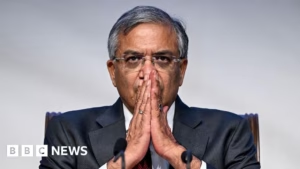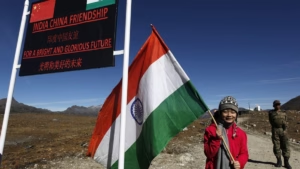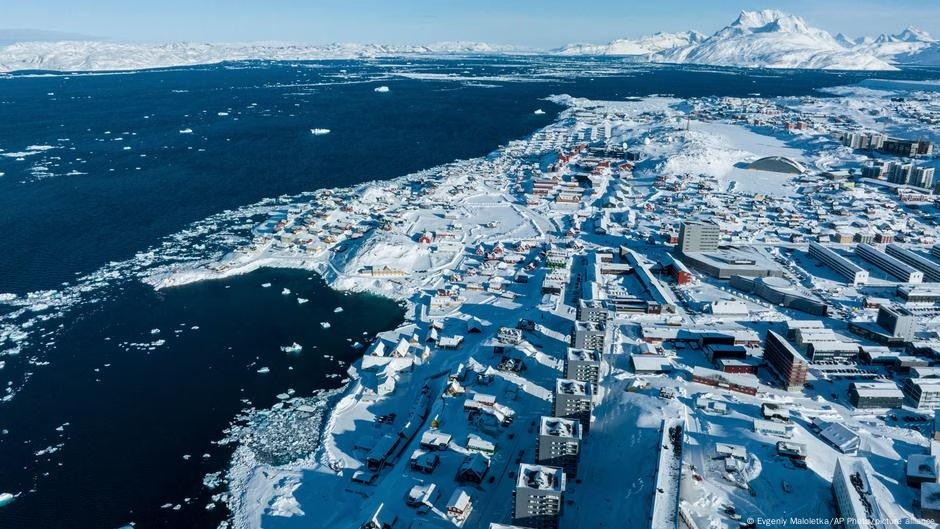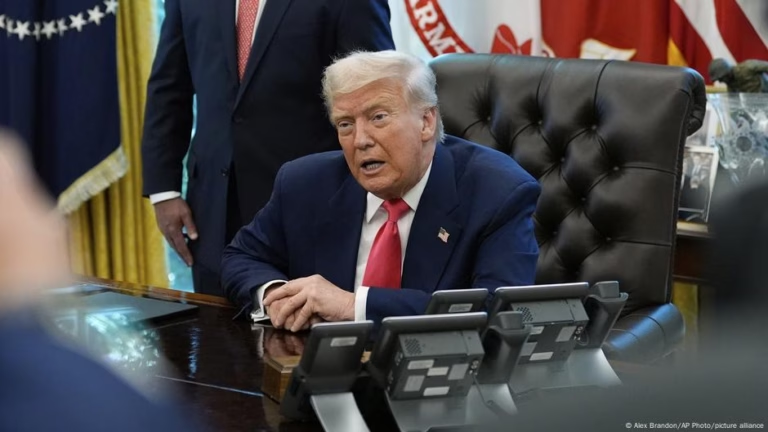However, these are not normal times, and this election stands to be a pivotal moment for further geopolitical shifts in the Northern Hemisphere.
Firstly, because supporters of Greenland’s independence aim to leverage the vote as a strong mandate for complete separation from Denmark. Currently, Greenland is a self-governing territory of Denmark, which was once a Danish colony.
Additionally, and perhaps most significantly, because US President Donald Trump has been expressing interest in acquiring Greenland since his election in November.
Greenland’s mineral wealth
Trump has often argued that controlling Greenland is in the United States’ security interest. Since the 1950s, the US has managed the Pituffik Space Base in northwestern Greenland, serving as a vital post for missile warnings and space surveillance.
In addition to security, economic motivations may also be a driving force behind Trump’s interest in Greenland. Significant deposits of oil, gas, gold, uranium, and zinc are believed to be in southern Greenland, with climate change easing the potential for mining these resources.
Established in 1951, the Pituffik Space Base is the US Air Force’s northernmost outpost. Image: Thomas Traasdahl/Ritzau Scanpix/IMAGO
In 2019, Trump attempted to purchase Greenland, but Denmark quickly dismissed the idea.
Yet, this term, Trump continues to express ambitions for expansion, including Canada, the Panama Canal, and Gaza, in addition to Greenland.
Before taking office in January, Trump sent his son, Donald Trump Jr., to Greenland, though this visit was touted as a tourist trip.
A poll published shortly afterward showed that only 6% of Greenlanders favored becoming part of the US, whereas 85% opposed the idea.
In his speech to Congress in March, Trump reiterated his desire to acquire Greenland, directly addressing its inhabitants with, “We strongly support your right to determine your future,” but then seemed to contradict this, stating, “I think we’re going to get it one way or the other.” Read more
Foreign interference?
The upcoming elections and Greenland’s strategic location have raised concerns about potential external influences. Denmark’s intelligence service, PET, has warned of Russian disinformation campaigns, especially regarding fake social media profiles that may polarize public opinion.
Though PET did not directly attribute these to any one country, this has heightened awareness of the risks associated with foreign influence in Greenland’s political landscape.
Political controversies
There have been several political controversies surrounding the upcoming election. Influencers linked to Trump’s “Make America Great Again” (MAGA) movement reportedly distributed $100 bills in Greenland’s capital, Nuuk.
Additionally, a local member of parliament, Kuno Fencker, was reported to have met with Republican politicians in Washington, where discussions were held regarding Greenland’s potential transition to an American territory.
“I was more concerned a month ago than I am now,” says Johan Farkas, a professor in media studies at the University of Copenhagen. This change in sentiment follows the enactment of a law by Greenland’s parliament banning foreign and anonymous donations, as part of an effort to protect the integrity of the electoral process.
Independence from Denmark
Beyond questions of American involvement, Greenlanders, known as Kalaallit, are also grappling with their own political aspirations, particularly regarding independence from Denmark. Approval ratings suggest a majority might support independence, but there is uncertainty about the timing and structure of this.
Greenland’s Prime Minister, Mute Egede, stated firmly in response to Trump’s speech to Congress: “We do not want to be Americans, nor Danes; we are Kalaallit. The Americans and their leader must understand that. We are not for sale and cannot be taken.”
The appropriation of Greenland’s mineral resources is another point of contention; some proponents of independence argue that disallowing foreign mining interests would reduce dependence on Denmark, which currently contributes substantially to Greenland’s economy.
Opinions are divided, and the March 11 election is unlikely to yield a definitive understanding of Greenland’s future. “This story was originally written in German.”








